Hiring a Customer Service Manager is a critical task for any organization that values customer satisfaction and retention. Businesses often underestimate the importance of this role, which can lead to overlooking key skills or the fit of a candidate with the company's culture. A Customer Service Manager should not only manage customer inquiries but also lead teams to improve service processes, making them a cornerstone for customer loyalty.
In this article, we guide you through the entire hiring process for a Customer Service Manager. We'll discuss what this role entails, the skills and qualifications to look for, and how to effectively assess candidates using tools like pre-employment screening tests.
Table of contents
Why Hire a Customer Service Manager?
A Customer Service Manager can be a game-changer for businesses facing challenges in customer satisfaction and retention. For instance, if your company is experiencing a high volume of unresolved customer complaints or declining customer loyalty, it might be time to bring in a dedicated manager to oversee and improve these areas.
Consider hiring a Customer Service Manager when:
- Your customer service team lacks proper guidance and structure
- There's a need to develop and implement new customer service strategies
- You want to improve overall customer satisfaction scores
Before committing to a full-time hire, assess if your current customer service issues can be addressed by improving your hiring process for customer service representatives. If the problems persist or require more specialized attention, then bringing in a full-time Customer Service Manager would be the next logical step.
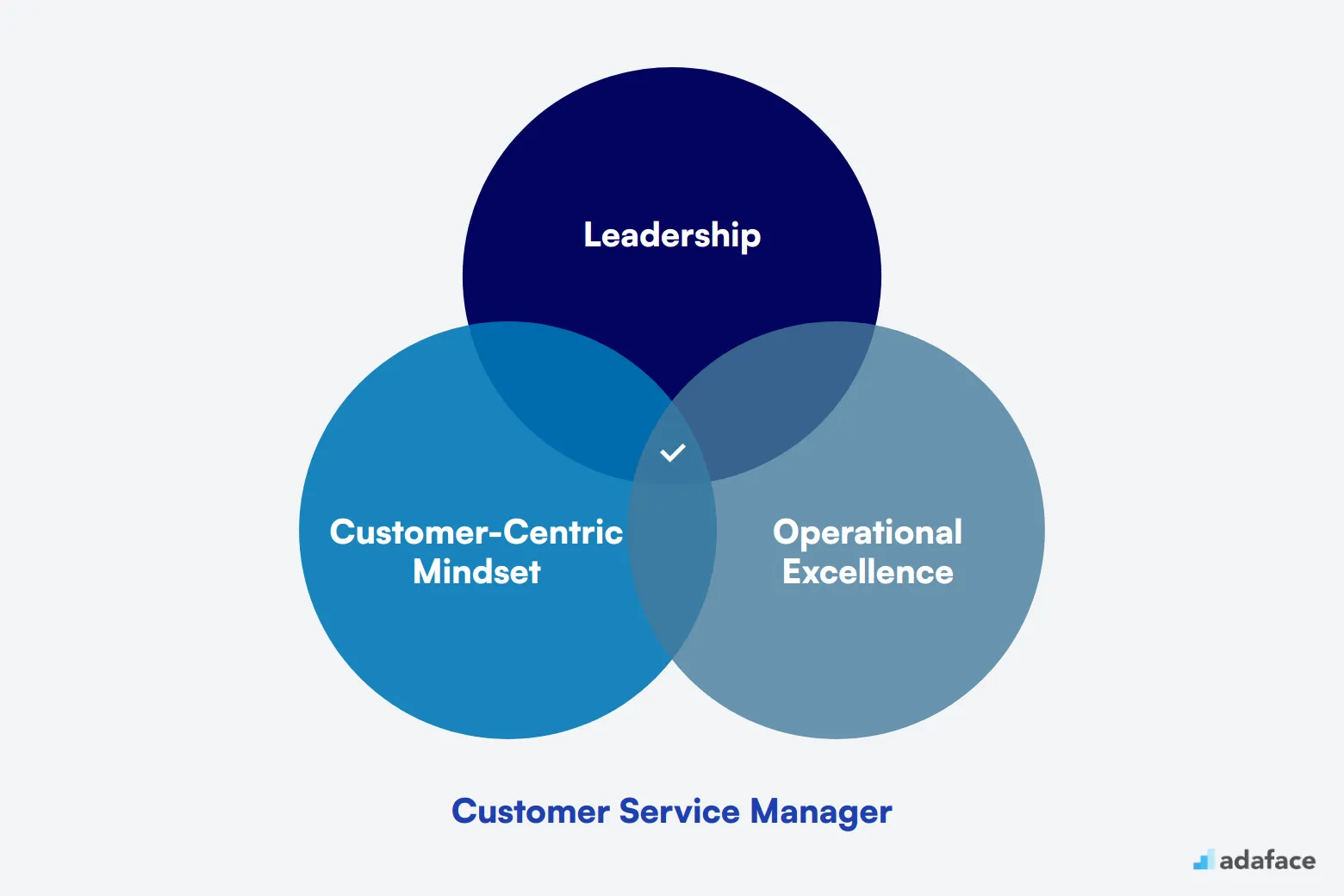
What Does a Customer Service Manager Do?
A Customer Service Manager leads the customer service team and ensures that customers have a positive experience with the company. They are responsible for improving customer satisfaction by implementing policies and procedures that enhance service quality.
On a daily basis, a Customer Service Manager:
- Supervises and supports the customer service team, ensuring they deliver high-quality service.
- Develops and implements customer service policies and procedures.
- Handles customer inquiries and resolves complaints or issues.
- Monitors and analyzes performance metrics to understand customer needs better.
- Collaborates with other departments to improve overall customer satisfaction.
For more details on the skills required for this role, you can explore skills required for Customer Service Manager.
Customer Service Manager Hiring Process
The hiring process for a Customer Service Manager typically takes 6-8 weeks. Here's a quick overview of the timeline and steps involved:
- Create and post a detailed job description
- Review resumes and applications (1-2 weeks)
- Conduct initial phone screenings (3-5 days)
- Administer skill assessments or case studies (1 week)
- Schedule and conduct in-person or video interviews (1-2 weeks)
- Check references and perform background checks (3-5 days)
- Make a job offer and negotiate terms (1 week)
- Onboard the new Customer Service Manager (1-2 weeks)
This process allows you to thoroughly evaluate candidates and find the best fit for your team. In the following sections, we'll dive deeper into each step, providing checklists and helpful resources to streamline your hiring process.
Key Skills and Qualifications for a Customer Service Manager
Hiring a Customer Service Manager can be challenging, especially when determining the precise qualifications and skills that align with your company’s needs. It's common for recruiters to confuse necessary qualifications with nice-to-haves, which can lead to a prolonged hiring process or unsuitable hires.
To create an effective candidate profile, you should distinguish between required skills and preferred qualifications. While some skills are essential for ensuring effective customer service management, others may simply enhance a candidate's fit for the role. Here are the key skills and qualifications to look for:
| Required skills and qualifications | Preferred skills and qualifications |
|---|---|
| Bachelor's degree in Business Administration or related field | Master's degree in Business or Customer Experience Management |
| 5+ years of experience in customer service management | Experience with CRM software and data analysis tools |
| Proven track record of improving customer satisfaction metrics | Knowledge of industry-specific regulations and best practices |
| Strong leadership and team management skills | Multilingual capabilities |
| Excellent communication and interpersonal abilities | Certification in customer service management |
How to Write an Effective Customer Service Manager Job Description
Once you've defined the ideal candidate profile for your Customer Service Manager role, it's time to craft a job description that attracts top talent. Here are some quick tips to help you create a compelling job post:
• Highlight key responsibilities and impact: Clearly outline the manager's role in leading the customer service team, setting performance standards, and improving customer satisfaction. Emphasize how their work directly contributes to the company's success and customer retention.
• Balance skills and experience: List both technical requirements (like CRM software proficiency) and soft skills (such as leadership and communication). Don't forget to mention any required certifications or industry expertise that are specific to your field.
• Showcase your company culture: Highlight what makes your organization unique, such as growth opportunities, team-building activities, or innovative customer service approaches. This helps attract candidates who align with your company values and vision.
Best Platforms to Hire Customer Service Managers
Now that you have crafted a standout job description for a Customer Service Manager, it's time to leverage job listing sites to source top candidates. Using specialized platforms can streamline the process and connect you to the right talent pool suitable for your organization's needs.
Indeed
Ideal for listing full-time customer service manager positions due to its wide reach and large user base.

Best for reaching a network of professionals and leveraging connections to find qualified candidates.

FlexJobs
Specializes in remote and flexible job opportunities, making it ideal for finding remote customer service managers.
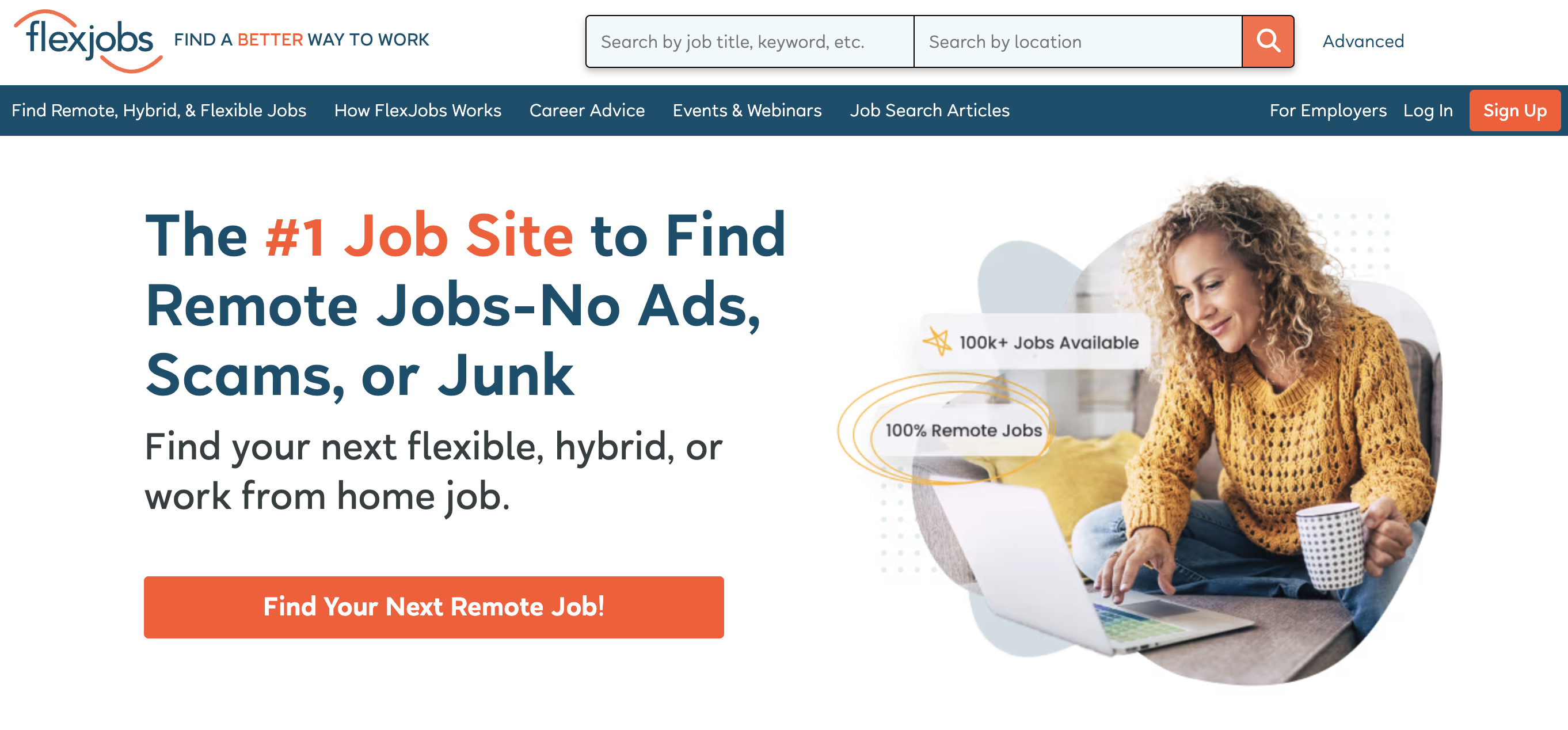
Beyond the top three platforms listed, several other sites can be invaluable when looking to hire Customer Service Managers. Glassdoor is great if you're highlighting company culture as part of your offer. For those considering freelance roles, Upwork stands out. Monster and SimplyHired are comprehensive boards catering to diverse job types, while AngelList and Startup Jobs can help if you're a startup seeking passionate individuals. For remote roles, Remotive offers a focused platform to connect with candidates seeking remote opportunities. Explore more about the selection process and strategies to enhance your hiring strategy.
How to Screen Customer Service Manager Resumes?
Resume screening is a key step in narrowing down your list of potential candidates for the Customer Service Manager role. It helps you identify those who have the qualifications and experience that align with your company's needs, saving you time and resources in the interview phase.
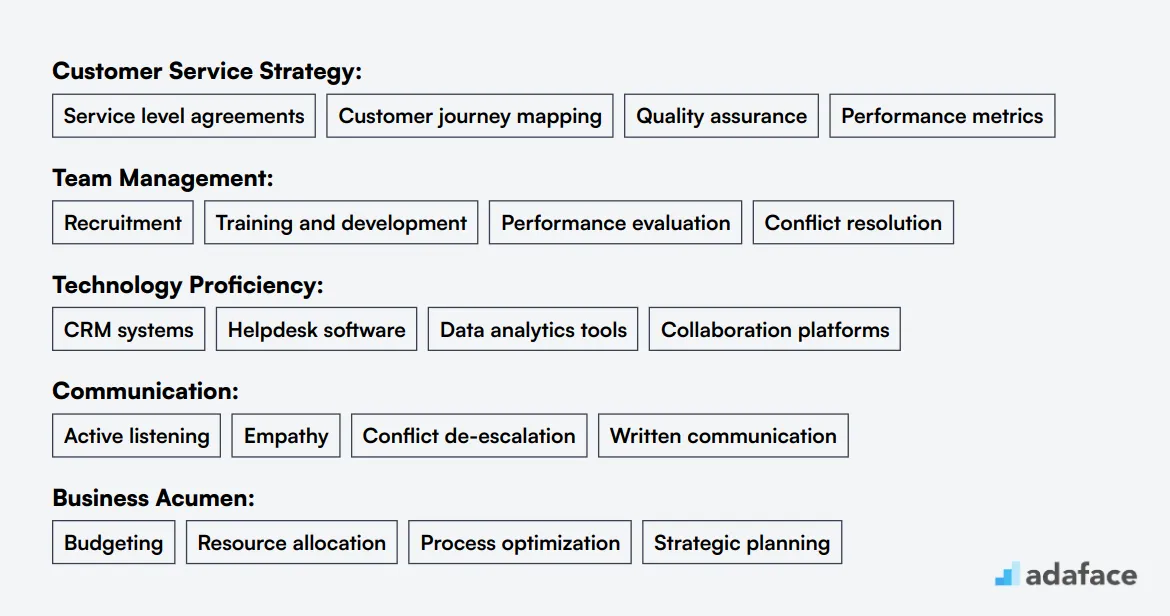
When manually screening resumes, focus on identifying specific keywords that relate to the role. Look for terms such as leadership, customer-centric mindset, and operational excellence, which are core skills for a Customer Service Manager. Additionally, terms like "CRM systems" and "team management" can indicate relevant experience. Understanding these keywords will help you quickly spot the resumes worth investing more time in.
Using AI tools like language models can streamline the screening process by automating keyword identification. Provide the AI with a set of criteria that matches the job description, and let it analyze resumes for matching keywords and relevant experience. This can significantly speed up the process and improve accuracy.
Here's an example prompt you can use to leverage AI for screening resumes:
TASK: Screen resumes to match job description for Customer Service Manager role
INPUT: Resumes
OUTPUT: For each resume, provide the following information:
- Email id
- Name
- Matching keywords
- Score (out of 10 based on keywords matched)
- Recommendation (detailed recommendation of whether to shortlist this candidate or not)
- Shortlist (Yes, No, or Maybe)
RULES:
- If unsure about a candidate's fit, mark the candidate as Maybe
- Keep recommendations concise
KEYWORDS DATA:
- Leadership
- CRM systems
- Customer-centric mindset
For further tips, you can explore articles on screening candidates and resume skills mapping.
Recommended skills tests for assessing Customer Service Managers
Skills tests are an effective way to evaluate potential Customer Service Managers beyond their resumes. These assessments help you identify candidates with the right mix of technical knowledge, soft skills, and problem-solving abilities. Here are five key tests we recommend for screening Customer Service Manager candidates:
Customer Service Test: This assessment evaluates a candidate's ability to handle customer interactions, resolve issues, and maintain a positive attitude. It's particularly useful for gauging how well a manager can guide their team in delivering excellent service.
Communication Test: Strong communication is at the core of customer service leadership. A communication skills test helps you identify candidates who can effectively convey ideas to both customers and team members, ensuring smooth operations and clear expectations.
Situational Judgment Test: Customer Service Managers often face complex scenarios that require quick thinking. A situational judgment test presents candidates with realistic work situations, helping you assess their decision-making skills and ability to lead a team through challenges.
Problem Solving Test: The ability to tackle issues creatively and efficiently is key for any managerial role. A problem-solving assessment can reveal a candidate's analytical skills and approach to resolving customer service dilemmas.
Time Management Test: Customer service environments can be fast-paced and demanding. A time management test helps you identify candidates who can prioritize tasks, manage team workloads, and ensure timely resolution of customer issues.
Case Study Assignments to Evaluate Customer Service Manager Candidates
Case study assignments can be valuable tools for assessing Customer Service Manager candidates. However, they come with drawbacks such as lengthy completion times, lower candidate participation rates, and the risk of losing quality applicants. Despite these challenges, well-designed case studies can provide deep insights into a candidate's problem-solving abilities and customer service approach.
Customer Complaint Resolution: Present candidates with a complex customer complaint scenario. Ask them to outline their approach to resolving the issue, including steps they'd take to investigate, communicate with the customer, and prevent similar problems in the future. This case study tests their problem-solving skills and ability to balance customer satisfaction with company policies.
Team Performance Improvement: Provide data on a underperforming customer service team, including metrics like response times, customer satisfaction scores, and ticket resolution rates. Ask candidates to analyze the data, identify potential issues, and create an action plan to improve team performance. This assignment evaluates their analytical abilities and leadership potential.
Customer Service Strategy Development: Ask candidates to develop a customer service strategy for a fictional company entering a new market. They should consider factors like staffing, training, technology, and performance metrics. This case study assesses their strategic thinking and understanding of customer service best practices.
How to structure interview stage for hiring Customer Service Managers?
Once candidates pass the initial skills tests, the next step is to move them to technical interviews to evaluate their hard skills. While skills tests help in filtering out unfit candidates, they cannot identify the best fit for the role. This stage allows you to assess technical capabilities and problem-solving skills, ensuring the candidate aligns with the role's requirements. Below, we discuss some sample interview questions to consider.
Here are some interview questions to ask candidates for the Customer Service Manager role:
- How do you handle a situation where a customer is unhappy with the service, but you can't meet their demands? This helps gauge problem-solving abilities.
- Can you give an example of a time you improved a team process or customer service strategy? This question assesses their leadership skills and their ability to innovate.
- Describe a time when you had to deal with a difficult team member. How did you handle it? This helps understand their conflict resolution skills.
- What customer service management software are you familiar with, and how have you used it in the past? This gives insight into their technical expertise.
- How do you keep your team motivated and engaged? Understanding their managerial skills can be critical for team dynamics. For more insights on this, refer to skills required for customer service manager.
What are the costs associated with hiring a Customer Service Manager?
Hiring a Customer Service Manager can vary widely in cost depending on factors like location and experience. On average, salaries in the United States hover around $66,955 per year, but can range from $41,707 to $96,553. Additionally, consider recruitment expenses, onboarding costs, and potential benefits, which can significantly impact the overall investment.
Customer Service Manager Salary in the United States
The average salary for a Customer Service Manager in the United States is approximately $66,955 per year. Salaries typically range from $41,707 at the lower end to about $96,553 for experienced professionals. Geographic location plays a significant role, with cities like Seattle offering salaries that can exceed $177,000.
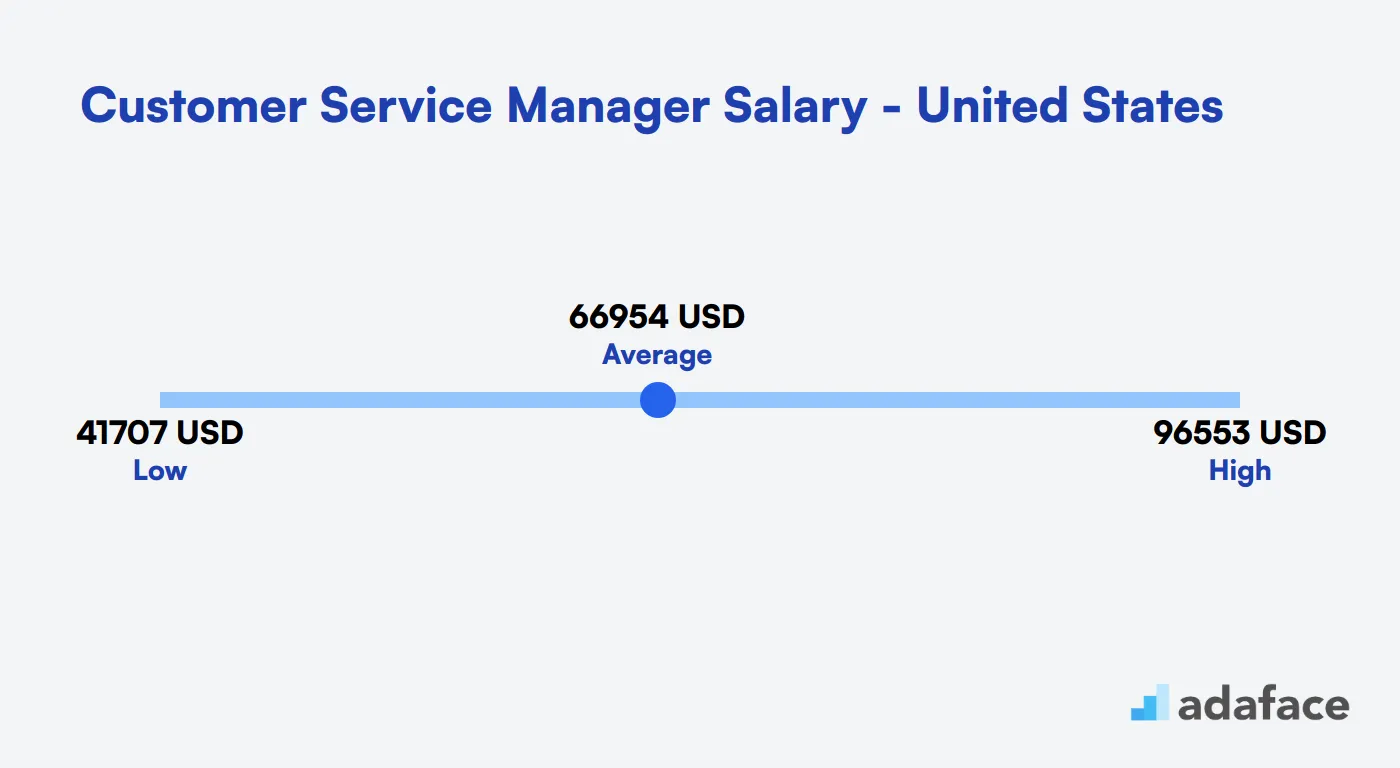
Customer Service Manager Salary in Canada
The average salary for a Customer Service Manager in Canada is approximately $68,646 CAD annually. Depending on the region, salaries can range from a low of around $43,982 CAD to a high of $97,329 CAD. For instance, in cities like Mississauga, ON, the average salary is about $82,279 CAD, while in Montréal, QC, it drops to around $50,984 CAD.
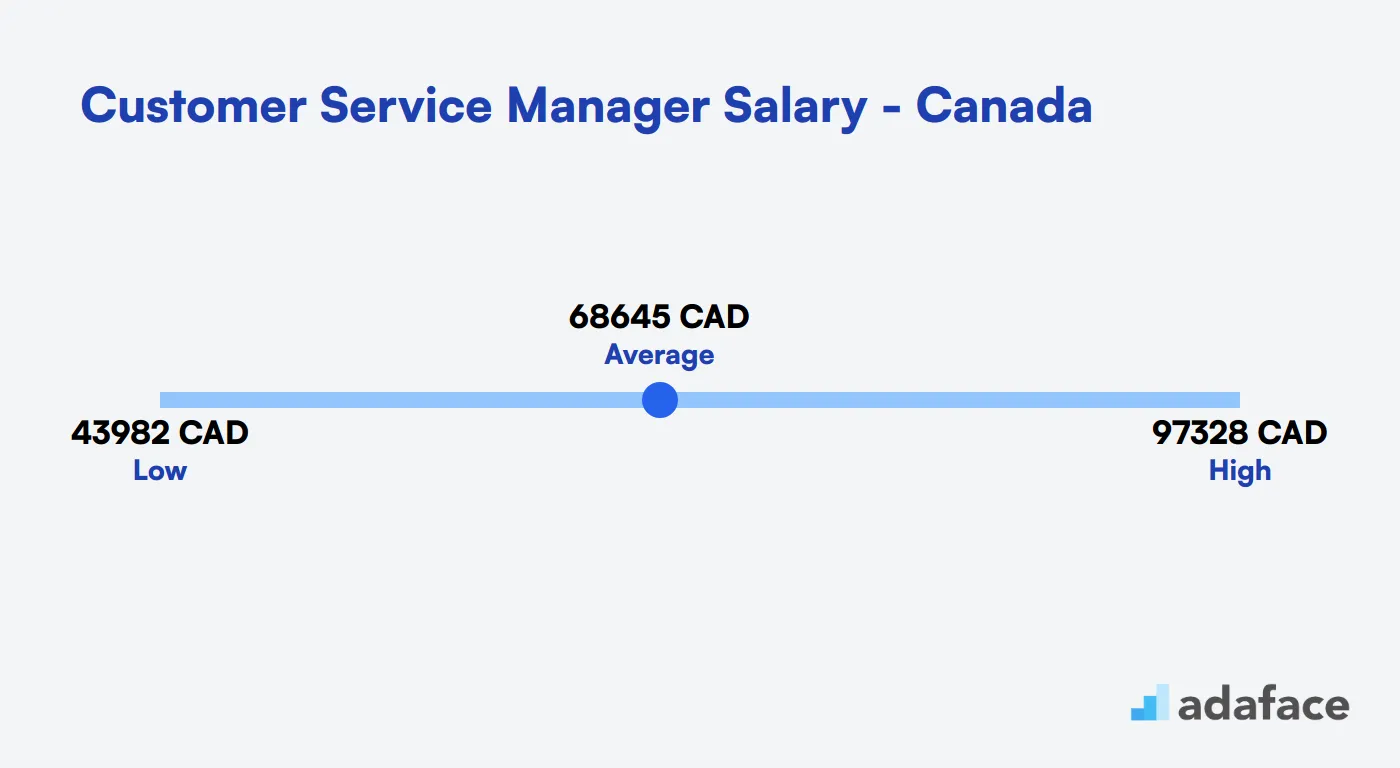
Customer Service Manager Salary India
In India, the average salary for a Customer Service Manager varies significantly depending on location. For example, in Hyderabad, the median salary is approximately ₹1,124,566, while in Delhi, it is around ₹511,556. Meanwhile, in Bengaluru, the median salary is about ₹405,740.
Overall, the median salary across the country is approximately ₹468,649. It's important to note that these figures can fluctuate based on factors like experience, industry, and company size.
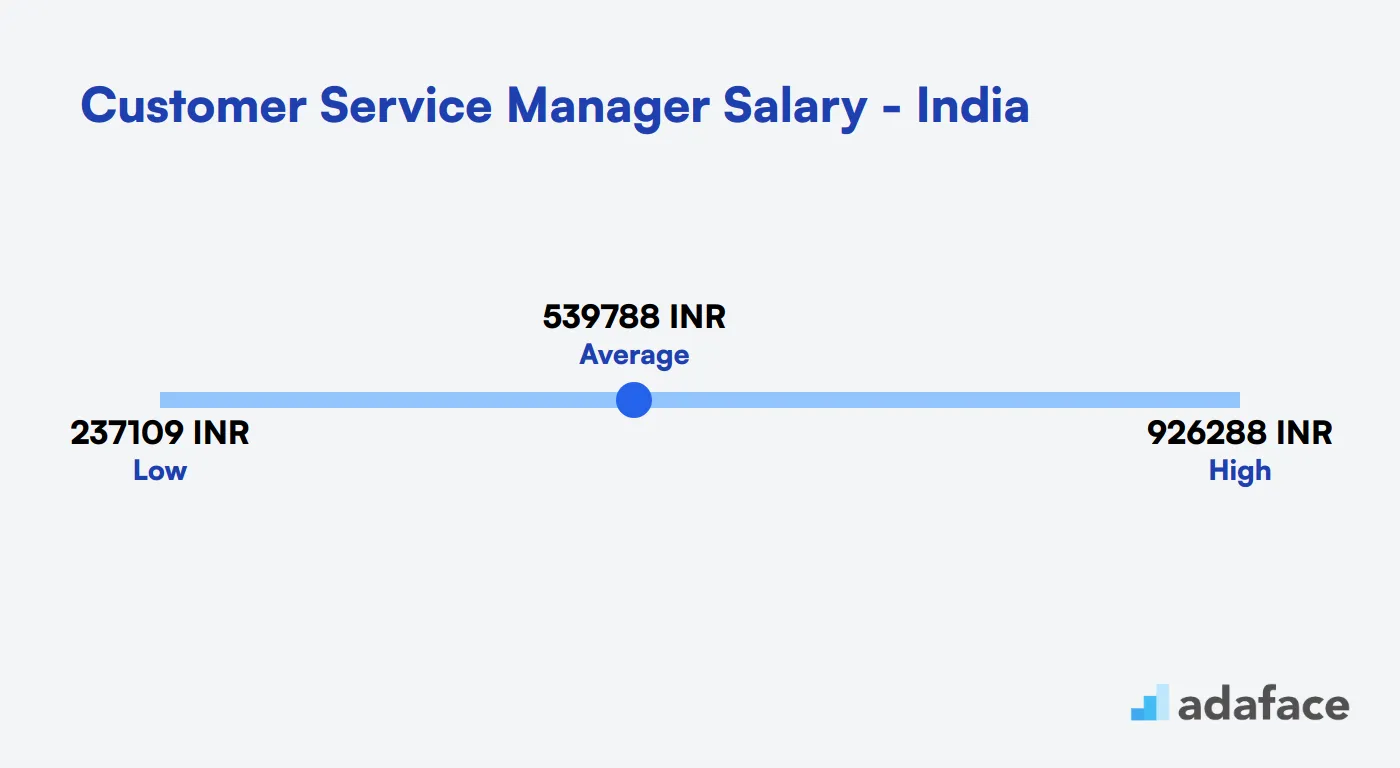
What's the difference between a Customer Service Manager and a Customer Experience Manager?
People often mix up the roles of a Customer Service Manager and a Customer Experience Manager, but their responsibilities and focus areas are quite distinct. Both aim to keep customers happy, but they approach this goal from different angles.
A Customer Service Manager is mainly concerned with operational efficiency. They supervise support staff, manage CRM systems, and aim to improve service delivery through response times and resolution rates. Their role is primarily focused on resolving issues and ensuring customer satisfaction after a sale.
On the other hand, a Customer Experience Manager looks at the overall customer journey, from pre-sale to post-sale. They coordinate cross-functional teams, use analytics platforms, and focus on customer-centric business strategies. They keep an eye on broader metrics like Net Promoter Scores (NPS) and customer satisfaction scores to enhance the entire customer experience.
Understanding these differences can help you employ the right skill sets. If you’re interested in learning more about the skill requirements for these roles, the Adaface blog offers deeper insights.
| Customer Service Manager | Customer Experience Manager | |
|---|---|---|
| Focus | Operational efficiency | Overall customer journey |
| Key Metrics | Response times, resolution rates | NPS, customer satisfaction scores |
| Team Management | Direct supervision of support staff | Cross-functional team coordination |
| Technology Use | CRM systems, ticketing tools | Analytics platforms, journey mapping tools |
| Strategic Input | Service delivery improvements | Customer-centric business strategies |
| Interaction Scope | Primarily post-sale support | Pre-sale to post-sale touchpoints |
| Skill Emphasis | Problem-solving, conflict resolution | Data analysis, strategic planning |
| Reporting Structure | Operations or Support leadership | Marketing or C-suite executives |
What are the ranks of Customer Service Managers?
Customer Service Manager roles often have different titles and responsibilities across organizations. Understanding these ranks can help recruiters and hiring managers better align their hiring needs with the right level of experience and expertise.
- Junior Customer Service Manager: This entry-level position typically oversees a small team of customer service representatives. They focus on day-to-day operations, team performance, and basic customer issue resolution.
- Customer Service Manager: At this mid-level position, managers handle larger teams and more complex customer issues. They may be involved in developing customer service strategies and improving processes.
- Senior Customer Service Manager: These experienced professionals manage multiple teams or departments. They play a key role in shaping customer service policies and often contribute to high-level business decisions.
- Director of Customer Service: This senior leadership position oversees the entire customer service function. They are responsible for setting the overall customer service strategy and aligning it with the company's goals.
- Vice President of Customer Experience: At the executive level, this role focuses on the broader customer experience strategy. They work closely with other departments to ensure customer satisfaction across all touchpoints.
When hiring for these positions, it's important to use appropriate interview questions that assess the candidate's skills and experience level for the specific rank you're filling.
Hire the Best Customer Service Managers
We've covered the key aspects of hiring a Customer Service Manager, from understanding their role to crafting effective job descriptions and conducting thorough interviews. The process involves identifying essential skills, using the right platforms, and implementing a structured evaluation approach.
If there's one key takeaway, it's the importance of using accurate job descriptions and skills tests to make your hiring process more precise. Consider using a customer service aptitude test to evaluate candidates objectively and ensure you're selecting the best fit for your team.
Customer Service Test
FAQs
A Customer Service Manager oversees the customer service team, develops and implements service policies, and ensures customer satisfaction and quick resolution of issues.
Look for strong communication skills, leadership ability, problem-solving skills, and experience with customer service software and processes.
Use skills tests, such as the Customer Service Test, to evaluate candidates’ abilities in real-world scenarios.
Consider using online job boards, LinkedIn, and specialized recruitment platforms that focus on customer service roles.
While both roles focus on customer satisfaction, a Customer Service Manager handles direct interactions and team management, whereas a Customer Experience Manager focuses on the overall customer journey and experience.
Structure your interview process with a mix of behavioral, situational, and technical questions to get a comprehensive view of the candidate’s skills and fit.
Typical progression involves moving from a Customer Service Representative to a Manager, and potentially into roles such as Director of Customer Service or Customer Experience Director.

40 min skill tests.
No trick questions.
Accurate shortlisting.
We make it easy for you to find the best candidates in your pipeline with a 40 min skills test.
Try for freeRelated posts
Free resources



